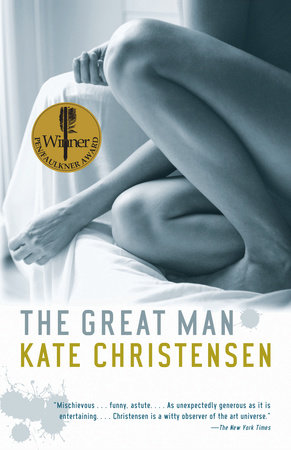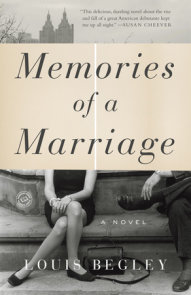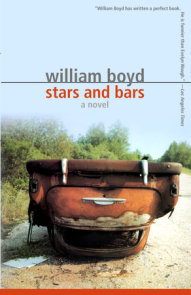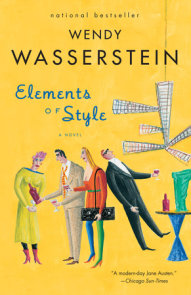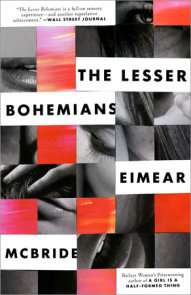READERS GUIDE
“The Great Man is as unexpectedly generous as it is entertaining. . . . Wise and expansive. . . . Christensen is a witty observer of the art universe.”—The New York Times
The introduction, discussion questions, and suggestions for further reading that follow are designed to enhance your group’s discussion of Kate Christensen’s The Great Man.
Introduction
Oscar Feldman, the renowned figurative painter, has passed away. As his obituary notes, Oscar is survived by his wife, Abigail, their son, Ethan, and his sister, the well-known abstract painter Maxine Feldman. What the obituary does not note, however, is that Oscar is also survived by his longtime mistress, Teddy St. Cloud, and their daughters.As two biographers interview the women in an attempt to set the record straight, the open secret of his affair reaches a boiling point and a devastating skeleton threatens to come to light. From the acclaimed author of The Epicure’s Lament, a scintillating novel of secrets, love, and legacy in the New York art world.
Questions and Topics for Discussion
1. The novel opens with Oscar Feldman’s obituary, which states that Oscar was survived by his sister and wife. The obituary mentions neither his mistress nor their daughters. How did this affect your reading of Chapter One, which is about Teddy St. Cloud? Did you find it confusing? Ironic? Did it take a while to figure out who she was? Why do you think the author chose to begin the book this way?
2. How does the fact that there are two biographers rather than just one add to or detract from the dramatic tension of the book? How would you characterize Henry’s and Ralph’s aims, feelings, and ideas about Oscar at the beginning of the book? How and why do these shift and change during the novel? What, if anything, does the book review at the end add to the story?
3. Maxine Feldman has some rather complex and very strong feelings about her brother. How would you characterize these feelings? What are some of the reasons behind them? Do you empathize with her?
4. Abigail Feldman tells Henry that she’s surprised that she ended up married to a man who came and went, cloistered in an airless apartment taking care of an autistic son, with a black housekeeper for her best friend. What are some of the reasons you think she might have chosen this life instead of the life of an unmarried English lit professor she had always thought she wanted? Do you believe the life she ended up with was more or less happy or fulfilling for her than the one she didn’t choose?
5. Do you think any of the women in the novel felt happy and fulfilled by their lives? Did any of them have as much control over their own actions and fates as Oscar had over his?
6. How does this quote from “The End of the Novel of Love,” by Vivian Gornick, relate to Oscar Feldman’s women and biographers? “How many women and men have I, in my short, obscure lifetime, watched subjugate themselves to The Great Man, the one who seemed to embody art with a capital A or revolution with a capital R? Our numbers are legion. We ourselves were intelligent, educated, talented, none of us moral monsters, just ordinary people hungry to live life at a symbolic level. At the time, The Great Man seemed not only a good idea but a necessary one, irreplaceable and unforgettable.”
7. Did the revelation that Maxine painted “Helena” surprise you? Does knowing this necessarily change the way the painting is seen? Do you agree that it also changes the way “Mercy” is seen as well, as Ralph says? Why or why not?
8. Throughout the novel, Oscar is a kind of focal point that unites all the characters and provides the story with its drama and flow, even though he’s dead. Did you find that Oscar came alive for you in everyone’s various feelings about and memories of him, or did he remain somewhat incomplete and shadowy? How do you feel about Oscar-do you admire him? Disapprove of him? Wonder why all the women were so in love with him? Envy him?
9. “If you were a woman, you could never have everything,” Teddy thinks at the end of Chapter Two. “[My mother’s] a control freak,” Ruby tells Ralph at the end of Chapter Three. How do you think Teddy’s awareness that she couldn’t have everything, coupled with her evident desire for control, affected her decision to be the mistress for many decades of a man who was married to someone else and faithful to no one?
10. The book ends at Maxine’s retrospective—Maxine died famous, but with the bittersweet knowledge that her pride prevented her from finding lasting love with Jane; Teddy has fallen in love with Lewis, but their time together is limited; and Abigail and Lila have become friends, but neither of them ever found the fulfillment in work each had hoped for as a young woman. Meanwhile, Henry is having a passionate love affair with Ruby, which sickens him with dread about his marriage; Ralph is financially secure now because of his secret deal with Abigail, which is essentially to whitewash the truth about his former idol, Oscar. Each of them has in some way received what she or he wanted, but in a compromised way. Is this a sugary, happy ending, a realistically true-to-life one, or an ironic and complicated one?







